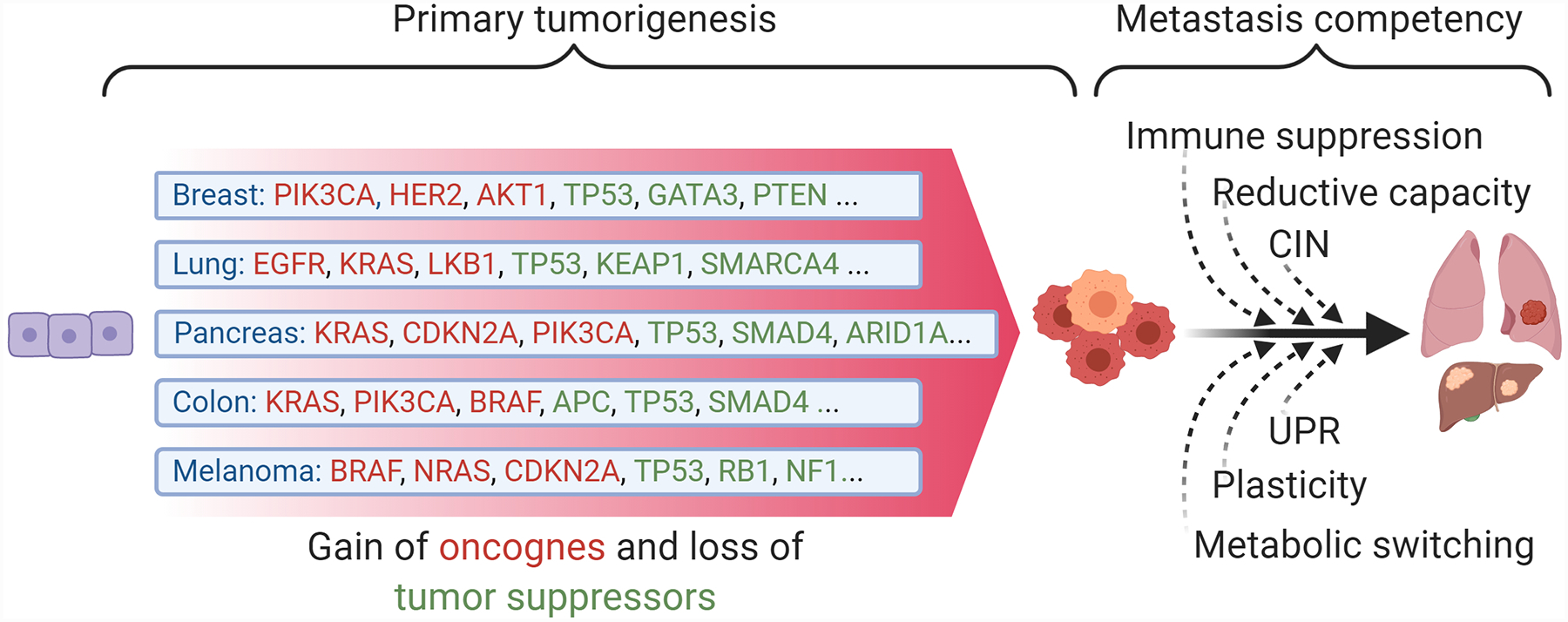Figure 3. Development of metastasis competency requires additional malignant properties beyond primary tumorigenesis.

Distinct primary tumor types evolve in a stepwise fashion with each additional mutation in a tumor suppressor or oncogene leading to incremental increases in competitive advantage. Key oncogene and suppressor mutations driving common cancers are often distinct from other cancer types and relatively few mutations are required for tumor formation (estimated at 2–8 driver mutations). In comparison, mutations in common oncogenes are not sufficient for metastatic competence, which instead requires the acquisition of multiple cellular programs that must align in order for the cells to withstand the stresses imposed by the metastatic process. Distinct tumor types therefore convergently evolve to acquire these pro-metastatic programs, which in turn offer the opportunity for biomarker-driven tumor type-agnostic therapies in metastatic cancer patients. CIN: Chromosomal instability UPR: Unfolded protein response.
